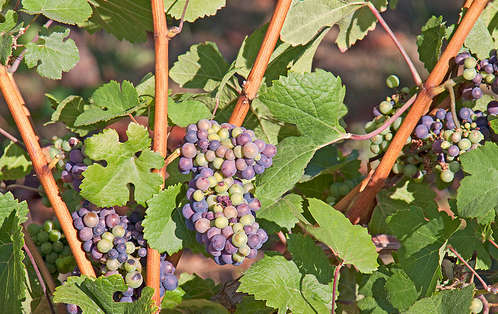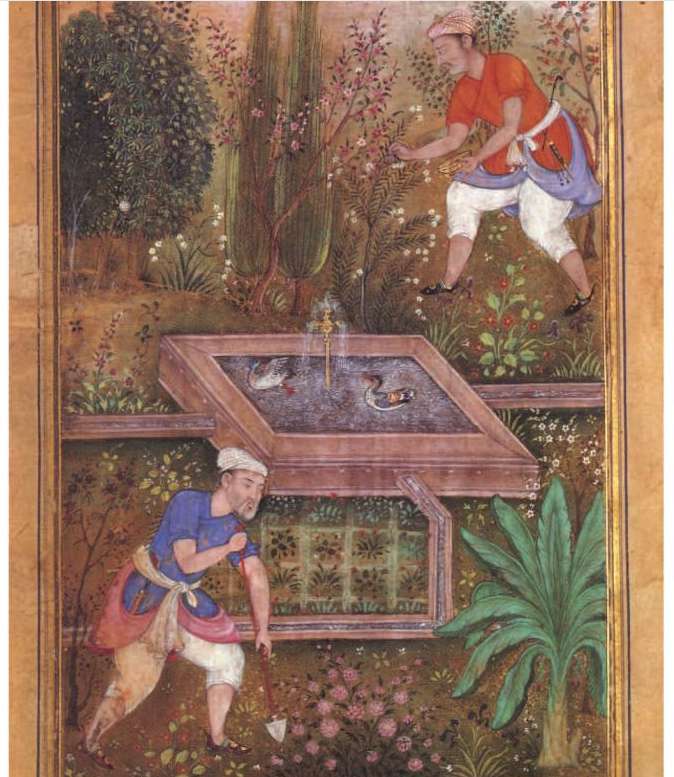FWP:
SETS == IDIOMS; INEXPRESSIBILITY
WINE: {49,1}
How much more lyrical and intoxicated-seeming can a verse get? The commentators have explained the wordplay; extreme intoxication is idiomatically called siyaah-mastii , literally 'black-drunkenness', and in its literal meaning the expression perfectly evokes the dark shade or shadow [saayah] of the grapevine in the garden. The 'lords of the garden' are the birds and flowers, and they too are as inebriated with the springtime as are the humans who join them in celebration.
There's an enjoyable sound-play between siyah (shortened from siyaah , to fit the meter) and saayah , that echoes the wordplay between the same two words.
Here havaa seems chiefly to mean 'breeze, air'. But where siyah-mastii is involved, can 'desire' be far behind? This alternative sense hovers invisibly over the verse.


Nazm:
That is, in the shadow of the grapevine the air is so forceful-- as if it has become a wave of wine. The pleasure of 'black-drunkenness' has a great affinity with the shadow. (44)
== Nazm page 44